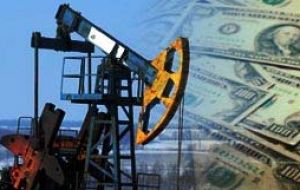MercoPress. South Atlantic News Agency
Commodities hedging and weak dollar spur record oil prices
 Oil break an another record price
Oil break an another record price Oil prices jumped on Wednesday to a new record high, 134 US dollars a barrel, on concerns about low US crude stockpiles, the weak dollar, supply constraints and increasing demand.
US light sweet crude for delivery in July was up 5 US dollars to 134.15 a barrel before falling back to 133.17. London Brent also headed higher, up 4.86 to 132.70 a barrel after surpassing 133 US dollars in earlier trading. In recent weeks, the rise in the oil price has been attributed to worries about supply and concerns were exacerbated by a US government report showing crude stocks fell by more than 5 million barrels, countering expectations of a rise and sent oil prices higher. The weakness of the US dollar is also driving the oil price higher as investors look to buy commodities as a hedge against the currency. OPEC (Oil Petroleum Exporting Countries) has even established a ratio link between the US dollar depreciation and the jump in oil prices. The crude-oil market is "well supplied" Libya's top oil official Shokri Ghanem said this week, rejecting calls for OPEC to increase production to curb prices. OPEC, which pumps more than 40% of the world's oil, isn't planning to meet before its next scheduled conference in September to review production, he said. Speculation that China would need to import more fuel in the aftermath of the earthquake there is also supporting prices. Other factors thought to be spurring the oil price include the limited supply of refined products such as diesel ahead of the US driving season. Amid the oil surge, top bosses from the five biggest international oil firms, including Exxon Mobil, BP, ConocoPhillips, Royal Dutch and Chevron, were forced to defend their massive profits before US Senate legislators, who accuse them of inflating prices at the petrol pump. US oil-company executives told Congress oil prices should be between 35 and 90 US dollars a barrel. Representatives of the five largest publicly traded oil companies appeared before the Senate Judiciary Committee to testify on record energy prices. The price of oil should be "somewhere between 35 and 65 US dollars a barrel" said John Hofmeister, president of Shell Oil Co., the Houston-based subsidiary of Royal Dutch Shell. Other executives said prices should be as much as 90 US dollars a barrel. US Congress last week approved legislation to halt deliveries to the Strategic Petroleum Reserve in an effort to respond to record prices. Bringing further volatility to the market Nigerian President Umaru Yar'Adua ordered Nigeria's state-run oil company to demand nearly 2 billion US dollars in arrears from Royal Dutch Shell and ExxonMobil, allegedly for not having paid taxes and production sharing costs they owe on two offshore oil fields. Companies say they have followed the law and are in discussions with the government. The Production Sharing Contracts agreed with the oil majors in the deep water production fields are coming up for renegotiation. A BBC correspondent said the price of oil has rocketed since they were first negotiated and the Nigerian government may be trying to improve their negotiation position. At the same time, the Nigerian National Petroleum Company (NNPC) has not been able to fund its share of the joint venture agreements for on-shore oil production, and is trying to find other ways of paying for them. Militant attacks and strikes by Nigerian oil workers have also contributed to push oil prices to record highs. The Nigerian Defence ministry has suggested militant attacks could be brought under control by employing the very militants conducting the attacks to police the pipelines, newspaper This Day reported in Lagos. "We will engage them to police oil pipelines, but they must first form themselves into limited liability companies for us to discuss with them," Defence Minister Yayale Ahmed told a House of Representatives committee on Tuesday.




Top Comments
Disclaimer & comment rulesCommenting for this story is now closed.
If you have a Facebook account, become a fan and comment on our Facebook Page!